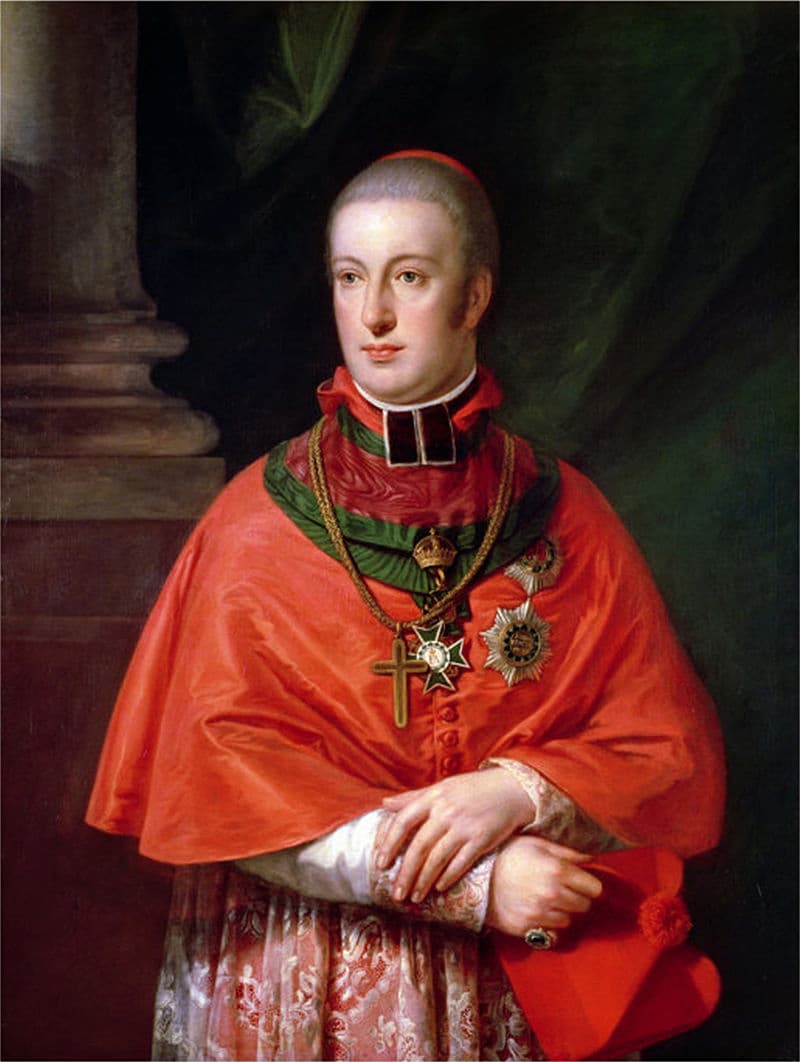Acclaimed as one of the supreme achievements in world literature The Brothers Karamazov was Fyodor Dostoevsky’s largest and final work. Published as a serial in The Russian Messenger from January 1879 to November 1880, Dostoevsky died less than four months after its publication. The novel was partially inspired by a personal tragedy, as Dostoevsky’s 3-year-old son Alyosha died of epilepsy, a condition he inherited from his father.
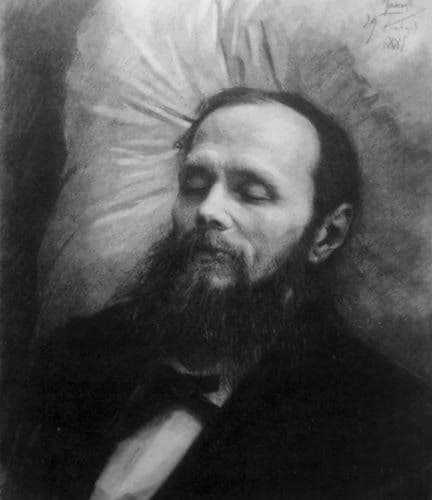
Dostoyevsky on his death bed, drawn by Ivan Kramskoy, 29 January 1881
Tellingly, the hero in The Brothers Karamazov is named Alyosha, and Dostoevsky also found inspiration at Optina Monastery, a spiritual center for Russia in the 19th century. The novel is set in 19th-century Russia and centers on the relationship between Fyodor Karamazov and his three sons from two marriages. Fyodor Karamazov is described as a “wicked, lecherous and cruel man.” Driven by only base desires and lusts, he is cruel to each of the boys and their mothers, and ensured that each boy was raised far away from him. It is even rumored that he employs an illegitimate son as a servant.
Bronislaw Kaper: The Brothers Karamazov, “Love Theme” (Bronisław Kaper, piano)
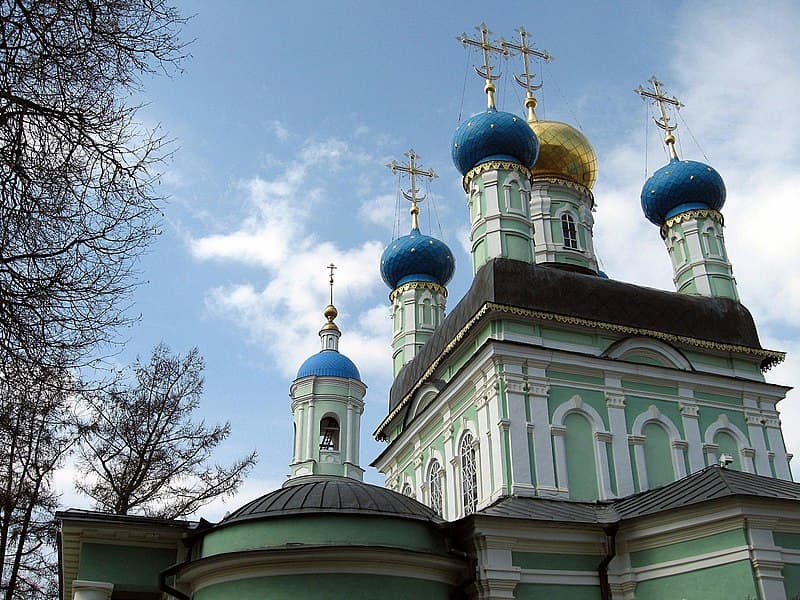
Optina Monastery
The oldest son Dmitri Karamazov, also appearing as Mitya, Mitka, Mitenka, and Mitri, is considered to be a sensualist. “Like his father, he regularly indulges in nights of drinking champagne and whatever entertainment and stimulation money can buy.” The relationship with his father is highly volatile and even violent, specifically when they start fighting over his inheritance and his father’s mistress Rushenka. He maintains a loose relationship with his brother Ivan, but is very close to his younger brother Alyosha. Ivan Karamazov also described as Vanya, Vanka, and Vanechka is “sullen and isolated, but also intellectually brilliant.” He is a rationalist and greatly disturbed by the cruelty and injustices in the world. He finds his father repulsive, and has no positive affection towards Dmitri. It doesn’t help that he falls in love with Dimitri’s betrothed, Katerina, and he is indifferent towards his brother Alyosha.
Kaper/Stankiewicz: The Brothers Karamazov, “Love Theme”
Alexei Karamazov, also described as Alyosha, Alyoshka, Alyoshenka, Alyoshechka, Alexeichik, Lyosha, Lyoshenka, is the youngest of the Karamazov brothers. He is a novice in the local Russian Orthodox monastery, and the hero of the novel. His mentor Father Zosima is a father figure to Alyosha throughout the book. Alyosha is deeply religious and almost saintly in his love and care for everyone, including his father.
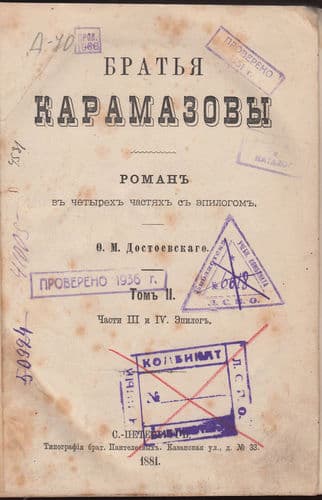
Fyodor Dostoevsky’s “The Brothers Karamazov” first edition cover
The plot of the novel is relatively simple. It involves a murder and a complex discussion of faith, doubt, and morality. When Dmitri asks his father for his inheritance, Fyodor laughs at this request for money. Dmitri is engaged to Katerina, but in love with a woman known as Grushenka and wants to run off with her. However, we learn that his father is a romantic rival for the love of Grushenka. We also learn that Fyodor has probably fathered another son named Smerdyakov with a mentally disabled woman, who works as a servant in his house.
Kaper/Mancini: The Brothers Karamazov, “Love Theme”
When Fyodor is found murdered, the town suspects all of the brothers. Circumstantial evidence points at Dmitri, who is arrested and must stand trial. With each brother contemplating his own guilt for Fyodor’s demise, Smerdyakov reveals to Ivan that he murdered Fyodor. He argues that Ivan is also guilty of this murder because he convinced him that the world is evil and everything is permissible. Ivan is destroyed with guilt and suffers a mental breakdown, and when he takes the stand in his brother’s trial, he is in a crazed mental state and confesses that he is responsible for the murder.
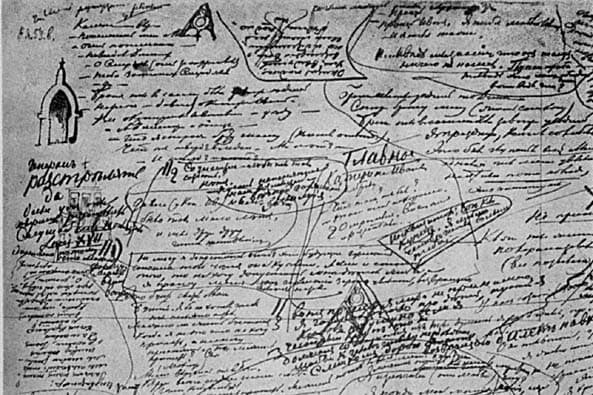
Dostoevsky’s notes for chapter 5 “The Brothers Karamazov”
Katerina, who has fallen in love with Ivan, is horrified by his testimony. To save him, she produces a letter for the court that Dmitri wrote her. In it, Dmitri claimed that he would be willing to murder his father. The letter gets Dmitri convicted. After the trial, Ivan helps Dmitri plan to escape and live in exile with Grushenka. Finally, Alyosha, who had befriended a group of schoolboys attends a young boy’s funeral and convinces his friends of the promise of faith.
Kaper/Mercuzio: The Brothers Karamazov, “Love Theme”
Trying to turn an 800-page book with countless twists and turns into a film would certainly be a daunting task. There have been a number of adaptations over the years, with the MGM 1958 film directed by Richard Brooks at the top of the list. The brothers are played by Yul Brynner, Richard Basehart and William Shatner in his film debut, with Maria Schell featured as Grushenka.
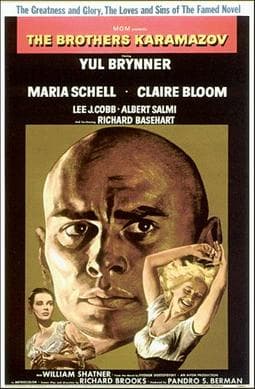
“The Brothers Karamazov” theatrical release poster
To compose the music for the film, the studio turned to Bronislau Kaper (1902-1983). A native of Warsaw and graduate from the Chopin Music School, Kaper first worked in Germany and France, and subsequently moved to Hollywood in the 1930s upon being offered a seven-year contract with MGM studio.
Kaper was an experienced and versatile composer capable of writing in a substantial variety of styles. Although he introduces some harsh modernist elements to his score for The Brothers Karamazov, Russian folk music emerges readily as source music. And with his “Main Theme,” also known as the “Love Theme,” he created a hit that is still being interpreted today.
For more of the best in classical music, sign up for our E-Newsletter

